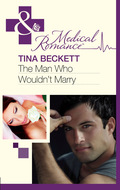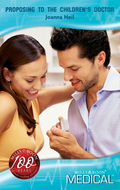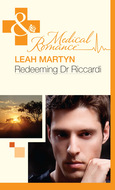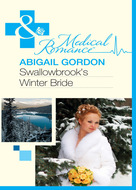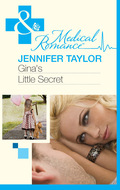Kitap dosya olarak indirilemez ancak uygulamamız üzerinden veya online olarak web sitemizden okunabilir.
Kitabı oku: «Casualty Of Passion»
He looked...
Admit it, Kelly, she thought reluctantly. He looks like a dream. Every woman’s fantasy walking around in a white coat.
She stared into eyes the colour of an angry sea, trying to equal his dispassionate scrutiny, trying to convince herself that it was just the shock of seeing him again which made her heart thunder along like a steam train.
Casualty of Passion
Sharon Kendrick
writing as Sharon Wirdnam

MILLS & BOON
Before you start reading, why not sign up?
Thank you for downloading this Mills & Boon book. If you want to hear about exclusive discounts, special offers and competitions, sign up to our email newsletter today!
Or simply visit
Mills & Boon emails are completely free to receive and you can unsubscribe at any time via the link in any email we send you.
Dear Reader,
One hundred. Doesn’t matter how many times I say it, I still can’t believe that’s how many books I’ve written. It’s a fabulous feeling but more fabulous still is the news that Mills & Boon are issuing every single one of my backlist as digital titles. Wow. I can’t wait to share all my stories with you - which are as vivid to me now as when I wrote them.
There’s BOUGHT FOR HER HUSBAND, with its outrageously macho Greek hero and A SCANDAL, A SECRET AND A BABY featuring a very sexy Tuscan. THE SHEIKH’S HEIR proved so popular with readers that it spent two weeks on the USA Today charts and…well, I could go on, but I’ll leave you to discover them for yourselves.
I remember the first line of my very first book: “So you’ve come to Australia looking for a husband?” Actually, the heroine had gone to Australia to escape men, but guess what? She found a husband all the same! The man who inspired that book rang me up recently and when I told him I was beginning my 100th story and couldn’t decide what to write, he said, “Why don’t you go back to where it all started?”
So I did. And that’s how A ROYAL VOW OF CONVENIENCE was born. It opens in beautiful Queensland and moves to England and New York. It’s about a runaway princess and the enigmatic billionaire who is infuriated by her, yet who winds up rescuing her. But then, she goes and rescues him… Wouldn’t you know it?
I’ll end by saying how very grateful I am to have a career I love, and to thank each and every one of you who has supported me along the way. You really are very dear readers.
Love,
Sharon xxx
Mills & Boon are proud to present a thrilling digital collection of all Sharon Kendrick’s novels and novellas for us to celebrate the publication of her amazing and awesome 100th book! Sharon is known worldwide for her likeable, spirited heroines and her gorgeous, utterly masculine heroes.
SHARON KENDRICK once won a national writing competition, describing her ideal date: being flown to an exotic island by a gorgeous and powerful man. Little did she realise that she’d just wandered into her dream job! Today she writes for Mills & Boon, featuring her often stubborn but always to-die-for heroes and the women who bring them to their knees. She believes that the best books are those you never want to end. Just like life…
For the stars of Blood Transfusion—the great Vera Hanwright, and in fond memory of Eleanor Lloyd.
CONTENTS
Cover
Title Page
Dear Reader
About the Author
Dedication
CHAPTER ONE
CHAPTER TWO
CHAPTER THREE
CHAPTER FOUR
CHAPTER FOUR
CHAPTER FIVE
CHAPTER SIX
CHAPTER SEVEN
CHAPTER EIGHT
CHAPTER SEVEN
CHAPTER EIGHT
Copyright
CHAPTER ONE
‘I TELL you, it was him— I actually saw him!’
Kelly heard the disbelieving sighs which followed this intriguing statement and wandered round into the female clinic room of St Christopher’s world-famous accident and emergency department, her curiosity aroused.
She grinned at the three nurses huddled there. ‘Sounds interesting. Saw who?’
Two of the student nurses looked to their undisputed leader, Staff Nurse Higgs—a statuesque blonde with magnificent smouldering blue eyes, who had given Kelly a particularly hard time since she’d arrived as casualty officer just a month earlier, since she didn’t take kindly to what she obviously saw as competition. Now she shrugged her magnificent shoulders and stared at Kelly as though she had just met her for the first time. ‘We’re talking about the new surgical registrar,’ she said reluctantly.
Kelly blinked. ‘Oh? We have a new surgical registrar on the rotation every couple of years. What’s so special about this one?’
Staff Nurse Higgs’s bosom swelled with excitement. ‘This one—’ she paused for dramatic effect ‘—just happens to be a lord!’
Kelly quickly picked up an ampoule of penicillin that was sitting on a dressing trolley and pretended to study it as a tiny shiver iced her skin into goosebumps beneath the white coat she wore. ‘A lord?’ she queried carefully, noting objectively that her swallowing reflex seemed to have gone to pot.
‘Mmm!’ said Staff Nurse Higgs, almost licking her scarlet lips. ‘Lord Rousay—a real member of the aristocracy! And that’s not all—he’s young, he’s bloody gorgeous, and—’ there was a dramatic pause ‘—he’s single! What do you think about that?’ Her eyes narrowed, her instinctive ability to sniff out gossip alerted. ‘Are you OK, Dr Hartley—you’ve gone awfully pale?’
‘Yes, of course I’m all right,’ answered Kelly briskly. ‘Why on earth shouldn’t I be?’
‘You’ve gone as white as a ghost—and look, your hand’s trembling.’ The eyes narrowed even further. ‘You don’t happen to know Lord Rousay, do you?’
No, I don’t know him, thought Kelly bitterly. I thought I did, but I was young, foolish, naïve. I was just a nobody he tried to take advantage of. She shook her head, but not one strand of the dark auburn hair in its constricting chignon moved. ‘Know him? Now, why would I know him?’ she said brightly. ‘There happen to be over twenty medical schools in the British Isles, with thousands of students, and while I know that lords in the medical world are pretty thin on the ground ...’ She paused for breath, her voice unusually high, and as she looked at their faces she realised that she was completely over-reacting. ‘No, I don’t know him,’ she finished lamely, not caring that she lied.
At that moment, she was saved by the bell. Literally. The sharp insistent peal of the red telephone on Sister’s desk shrilled into their ears.
The emergency telephone: the one which never rang except in critical and life-threatening situations.
Nurse Higgs sped off, Lord Rousay temporarily forgotten, and Kelly followed her, her long and sleepless night shift banished by the rush of adrenalin which always accompanied a crisis. Life in the accident and emergency department was one long series of crises.
When she reached Sister’s office, Nurse Higgs was just replacing the receiver. ‘There’s a child coming in,’ she said succinctly. ‘Aged two. Been savaged on face by a Rottweiler dog. Injuries extend to neck—the ambulance men are querying tissue damage to her airway. They’re trying to intubate her, but there’s swelling, apparently.’
‘Bleep the duty anaesthetist,’ said Kelly quickly. ‘And can you send an experienced nurse into the resuscitation room to make sure the paediatric airway set is open? Did they say how bad the wound is?’
‘No.’
‘Well, when they arrive — ’ But Kelly’s sentence was never finished because at that moment they heard the insistent sound of the ambulance’s siren as it sped to the back entrance of the department.
‘That’s them!’ said Kelly. ‘Come on!’
Kelly ran out to greet it, Nurse Higgs hot on her heels. As soon as the back door was opened, Kelly climbed in, the blood draining from her face as she saw the extent of the child’s injuries. No matter how experienced you were, it never left you—that feeling of helplessness when you saw someone who was terribly injured, especially when you were dealing with a toddler like this one.
The little girl was barely conscious. Shock, Kelly decided. Her breathing was stertorous but steady, and there was an airway in situ.
‘We couldn’t manage to intubate her,’ said the driver, as he helped unhook the intravenous fluid bag from the drip stand before rushing the stretcher into A & E. ‘You’ll need an anaesthetist for that—the tissue is swollen.’
‘He’s on his way,’ said Kelly briefly.
All the way into the department and along the short corridor to the resuscitation cubicle, she quizzed the drivers.
‘What’s her name?’
‘Gemma Jenkins.’
Kelly bent her head and said softly into the child’s ear, ‘Hello, Gemma—I’m Dr Kelly. You’re here in hospital and you’re safe.’
Gemma remained unresponsive. Kelly turned worried eyes to the second ambulance man. ‘When did this happen?’
‘Only a few minutes ago, thank God.’
‘Do we know how?’
The driver’s mouth twisted with distaste. ‘The dog belongs to the mother’s boyfriend. He brought it round after a lunchtime session up the pub, rather the worse for wear. He disappeared into the bedroom with the mother, leaving the child to “play” with the dog.’
Kelly nodded. ‘I see. Do we know where the mother is now?’
‘She’s following behind in a taxi. With the boyfriend.’
Kelly raised her eyebrows. ‘But surely the mother wanted to accompany Gemma?’
‘She’s hysterical.’
‘As well she might be,’ said Kelly grimly.
‘What she wanted,’ said the ambulance driver, in the kind of weary voice which indicated that he had seen too much of the dross of life not to have become a cynic, ‘was to comfort the boyfriend. He’s worried that she’ll press charges.’
Kelly, too, had grown used to the vagaries of human nature: these days she was rarely shocked, but this comment left her momentarily speechless. She shook her head in despair. ‘Come on—let’s get her on to the trolley.’
To Kelly’s intense relief, the anaesthetist arrived and began to intubate the little girl. If he’d been delayed, Kelly could have done it at a pinch but, unless you’d had specialist training, trying to get an airway down a child’s tiny trachea was notoriously difficult, particularly if the area was as swollen as this child’s. The most common mistake was to insert the airway into the oesophagus instead of the trachea.
While the anaesthetist was extending the neck, Nurse Higgs began taking pulse, respiration and blood-pressure recordings, while Kelly gently wiped the blood away from Gemma’s face so that she could see how bad the wound was.
It was bad enough. A great gaping gash which extended jaggedly down the left side of her face, but which had fortunately just missed the eye.
Kelly glanced up at the anaesthetist. ‘How’s her breathing?’
‘Stable. And she’s coming round.’
At least with the child’s condition stabilised the danger of respiratory arrest had been allayed for the time being, thought Kelly, and she turned to Nurse Higgs. ‘She needs suturing. Can you bleep the plastics surgeon?’
‘The plastics?’ queried Nurse Higgs, and the hostility which she had been showing towards Kelly since she had started three weeks ago finally bubbled over. ‘Aren’t you going to do it yourself?’
Kelly frowned with anger at the implied criticism. ‘Nurse Higgs,’ she said quietly, ‘I’m adequate enough at stitching, but not arrogant enough to play God. I’m not sufficiently experienced to do delicate work of this nature—a botch-up here could cost a young child her looks and leave her with an unsightly scar. Now, are you going to bleep the plastics man for me, or am I going to have to do it myself?’
Nurse Higgs’s eyes sparked malicious fire, but she bustled out without another word.
The anaesthetist raised an eyebrow. He was a tall, pale man, infinitely calm like most of his profession. ‘Trouble?’ he queried mildly.
‘Nothing that I can’t deal with,’ Kelly answered resolutely, as she dipped another piece of cotton wool into the saline solution and very gently wiped some dried blood away.
‘Report her,’ he suggested.
Kelly shook her head. ‘I’ll manage,’ she said, and dropped the used piece of cotton wool into the paper bag which hung on the side of the trolley.
They worked in silence, until the glimpse of a blinding white coat out of the corner of her eye told Kelly that the plastics man had arrived, but before she could get a proper look at him, she heard a horribly familiar laconic voice.
‘I’m here to suture.’
Kelly looked up briefly, her eyes flicking to his name-badge. ‘Randall Seton, Surgical Registrar’. His title, Lord Rousay—his still living father holding the title of Lord Seton, which Randall would one day inherit—was of course absent.
She swallowed, and looked down at the child again. ‘I asked for someone from plastics,’ she said. ‘Not a general surgeon.’
He was already taking off his white coat and removing the gold cuff-links from his pristine pinstriped shirt. ‘And there isn’t anyone from plastics available,’ he drawled, ‘so you’ve got the next best thing. Me. Get me a pair of size nine gloves, would you, Staff?’
Staff Nurse Higgs had miraculously appeared by his side, like the genie from the lamp, and was staring up at him like an eager puppy. There was none of her delayed hearing problem in evidence today—the one which habitually had Kelly repeating her requests—and she sped off immediately to do the surgeon’s bidding.
Kelly continued to clean the wound, her heart racing. She was professional enough not to let him know how much his closeness bothered her, woman enough to be unable to deny the potency of his attraction.
‘Right,’ he murmured. ‘Let’s have some local anaesthetic drawn up, shall we, Staff?’
The voice was the same. Centuries of breeding, the finest schools, the big, country houses, privilege from the word go had guaranteed that Randall would speak with that confident, beautifully modulated English accent, as precise as cut glass. But it differed from the popular conception of the aristocratic voice, because it was deeper, sardonic, mocking—worlds away from the popular idea of the upper-class twit. It was an exquisite voice—smooth as syrup and dark as chocolate, the kind of voice which sent shivers down the spine of every woman from sixteen to ninety.
The wound was almost completely clean, and he had gloved up and was ready to start suturing.
‘Thanks,’ he said softly.
Their eyes met for a fraction of a second, and the impact of it was enough to make Kelly feel as though she had been winded and bruised by an unexpected blow.
‘I’d better go and talk to the mother,’ she said quickly, but he didn’t seem to hear her. He was too busy pushing a fine syringe into the damaged area of the child’s face with delicate precision even to notice Kelly’s departure.
Heart hammering, Kelly picked up the casualty card, rang through to the reception desk, and asked for the mother of Gemma Jenkins to be sent along to the doctor’s office.
She sat down, noticing dispassionately that her hands were actually trembling. She had never thought that she would see Randall ever again, she really hadn’t—or perhaps that had been wishful thinking. But even given the notoriously closely knit world of British medicine, she certainly hadn’t considered that just the merest glimpse of him, just the sound of that seductive mellifluous voice would be enough to shatter her composure and make her feel like the insecure seventeen-year-old she had been when she’d first met him.
She sighed. Nine long years ago. Where had they gone? Nine years of study, study, study and work, work, work.
And she had imagined that she had acquired a little sophistication on the way, had thought that she had become a little more worldly-wise. Was she going to let just the sight of Randall rip away all the complex layers of emotional maturity she had carefully constructed over the years?
Like hell she was!
There was a soft rap on the door, and Kelly instinctively sat upright in her chair, pulling her narrow shoulders back and arranging her features into a neutral expression.
‘Come in!’ she called.
Gemma’s mother had, predictably, brought the boyfriend in, clinging possessively on to his arm, as though he were the first prize in a raffle. He had lurid tattoos over every available inch of flesh and he stank of booze. Kelly swallowed down the feeling of revulsion, determined to remain impartial. She had been taught, over and over again, that emotionally involved doctors who made value judgements were simply not doing their jobs properly.
The mother could have been little more than twenty-two—a woman who looked little more than a girl herself. She’s younger than me, thought Kelly, with a jolt of surprise. And yet there was a grimy greyness to her complexion which told of a life lived inside, in high-rise blocks far away from the fresh air and the sunshine. She wore cheap, ill-fitting clothes. Her legs were pale and bare and she had squeezed her feet into tight, patent shoes, obviously new, though they were spattered with mud. On her heels she wore plasters where the shoes had obviously cut into her flesh. Her blonde hair was full of gel with little bits spiking upwards like a porcupine’s, and already the dark roots were an inch long. Stooping, sad and pathetic, she stared back at Kelly with blank, disillusioned eyes and Kelly cursed a society which could allow the cycle of deprivation which had made this woman into one of life’s losers. And would now probably do the same for her daughter.
She schooled her face into its listening expression. ‘Mrs Jenkins?’ she asked politely.
‘It’s Miss!’ interrupted the man. ‘That bastard didn’t bother marrying her when she had his kid.’
‘And your name is ...?’ prompted Kelly.
‘Alan,’ he swaggered. ‘Alan Landers.’
‘How’s ... how is Gemma?’ the woman asked, her voice a plaintive whine.
At last. ‘The doctor is suturing her face now,’ said Kelly briskly. ‘Given his skill, and the fact that your daughter is young enough to heal, well—we’re hoping for the best, but I have to warn you that she will have a scar, though the surgeon is doing his best to ensure that it will be as small and as neat as possible.’
She took a deep breath. The police would investigate, but the A & E department themselves would need details of what had happened. ‘Just for the record, would you mind telling me how it happened?’
Mr Landers screwed his face up into an ugly and menacing scowl. ‘Stupid kid was winding the dog up. That dog wouldn’t hurt no one.’
Refraining from pointing out the obvious flaw in his logic, Kelly thought that if she had been a man and not a doctor nothing would have given her greater pleasure than to punch this ignorant lout on the nose, but even if she had done, that wouldn’t have been the answer. He had probably grown up fighting violence with violence, and as soon as he was old enough had gone out and bought an aggressive dog as a kind of ferocious status symbol, supposed to demonstrate just how much of a man he was.
Kelly looked directly at the man. ‘Did you witness the attack?’
‘Nah.’
‘But it was your dog?’ persisted Kelly, her fountain-pen flying as she wrote on the casualty card.
‘That’s right.’
‘And you weren’t there when it attacked?’
‘That’s right,’ he said again.
Kelly had to bite back the incredulous question of how someone could leave a big, violent dog alone with a small child. ‘So where were you when the attack took place on Gemma?’
This provoked a raucous belly laugh. ‘In the bedroom,’ he leered, and his eyebrows lifted suggestively as his gaze dropped to Kelly’s breasts. ‘Want me to tell you what we was up to?’
‘That won’t be necessary, Mr Landers,’ said Kelly crisply. She turned to the woman and her totally vacant expression.
‘You do know, Miss Jenkins, that I’m going to have to call in Social Services?’
‘Do what?’ The grey-faced woman was on her feet at once. ‘And get some nosy-parker social worker sticking their oar in?’
Kelly looked at them both sadly. Didn’t they realise that if the child was deemed to be at serious risk she could be taken away from them? God forgive her, but in a way she wished that Gemma would be free of them, if she hadn’t also known that often children in care suffered from a different kind of neglect. ‘I am also going to have to report the injury to the police—’
‘What for?’ the man demanded belligerently.
Kelly put her pen down. ‘Because this category dog is supposed to be muzzled, Mr Landers—as I’m sure you know. It certainly shouldn’t have been left alone in a room with a toddler ...’ Kelly paused, recognising that, despite all her pep-talking to herself, she had done the unforgivable—she had sounded judgemental. But doctors were human too, and she wondered seriously whether anyone in their right mind could have stopped themselves from adopting a critical tone with a case of this sort.
But it was when the man stabbed an angry finger in front of her face that she realised that if she wasn’t careful, he really could turn nasty. She had better let him have his say. Even in her three short weeks in A & E, she had learnt that ‘verbalising your feelings’, as one of the social workers put it, also tended to defuse pent-up emotions.
Mr Landers’s face was contorted into an ugly mask. ‘You listen here to me, you little bitch—’
‘What’s going on in here?’ came a deep, aristocratic drawl.
The three of them looked at the door, where the tall, dark and rangy form of Randall Seton stood surveying them through narrowed eyes.
The man replied in time-honoured fashion. ‘Push off, you stuck-up git!’
There was a silence of about two seconds, and then Randall moved forward, his whole stance one of alert, healthy and muscular readiness. He radiated strength and he spoke with quietly chilling authority; but then, thought Kelly somewhat bitterly, that was the legacy of privilege too.
‘Listen to me,’ he said softly. ‘And listen to me carefully. Dr Hartley has just been caring for your daughter in Casualty. So have I. I’ve just stitched together the most appalling wound inflicted by an animal that I’ve ever seen, praying as I did so that it will leave as little scar tissue as possible. An anaesthetist is currently pumping air down into her lungs, because where the dog’s teeth ripped at her throat it caused such swelling that if an ambulance hadn’t been on the scene so promptly, her airway could have been obstructed and your daughter could have died from lack of oxygen.’
The mother gave an audible gasp of horror, as though the reality of what had happened had just hit her.
‘She is shortly going to be admitted to the children’s ward,’ he continued, ‘where she will be looked after by another series of staff. Now we’ve all been doing our job, because that’s what we’re paid to do and that’s what we chose to do. What we do not expect is to be criticised or insulted for doing just that. Have I made myself perfectly clear, Mr— Mr—?’ The dark, elegent eyebrows were raised in query, but there was no disguising the dangerous spark of anger which made the grey eyes appear so flinty. At that moment, he looked positively savage, thought Kelly, but he somehow managed to do it in a very controlled kind of way. But there again, Randall was the master of self-control, wasn’t he?
‘Landers,’ gulped the man. ‘Yes, Doctor. I understand.’
‘Good.’ Then the dark-lashed grey eyes swept over Kelly. ‘Can I see you for a minute?’
Nine years, she thought, slightly hysterically, and he asks can he see me for a minute. Breaking up with Randall—not that such a brief acquaintanceship really warranted such a grand-sounding title—had been the best thing which had ever happened to her. But she had often wondered, as women always did wonder about the first man who had made them dizzy with desire, just what would happen if they saw each other again. What would they think? What would they say?
She had never imagined such an inglorious reunion taking place in a tiny and scruffy little office in one of London’s busiest A & E departments, nor him saying something as trite as that.
He looked ...
Admit it, Kelly, she thought reluctantly. He looks like a dream. Every woman’s fantasy walking around in a white coat.
He was lightly tanned. Naturally, he was tanned; he was always tanned. In the winter he skied down the blackest runs in Switzerland, and in the summer he holidayed with friends around the Mediterranean on a yacht which he had owned since the age of eighteen. Nine years hadn’t added a single ounce of fat to that incredibly muscular body, honed to perfection by years of rigorous sport. The hair was as dark as ever, almost too black—a gypsy ancestor had been responsible for the midnight gleam of those rampant waves, he had once told her—sure!—and it curled and waved thickly around a neck which Michaelangelo would have died to sculpt.
She stared into eyes the colour of an angry sea, trying to equal his dispassionate scrutiny, trying to convince herself that it was just the shock of seeing him again which made her heart thunder along like a steam train. ‘I can’t,’ she said. ‘I’m afraid that I’m busy just now taking a history.’
He gave her a cool smile, the flash in the grey eyes mocking her. ‘When you’ve finished, then?’
It would never occur to him to take no for an answer. ‘I’m afraid that I may be tied up for some time.’
He shrugged the broad shoulders. ‘In that case, I’ll chase you up when I’m out of Theatre.’ His eyes glittered. ‘I can’t wait.’ It sounded awfully like a threat.
She wanted to say, Why bother? What was the point? Instead she shrugged her shoulders indifferently—a gesture which deserved to win her an Oscar. ‘If you like,’ she answered coolly. And picked up her pen again.
‘And now, Miss Jenkins. If you’d like to give me a few more details ...’
She didn’t have time to think of him again during that shift; she was absolutely run off her feet. A middle-aged man came in on a stretcher with his leg badly broken in three places, and then a teenage girl was admitted with an overdose.
‘How many has she taken?’ Kelly asked her white-faced and trembling mother as she handed her the empty bottle.
‘Only ten. That’s all that was left in the box. She left a note. It said—’ and here the woman started sobbing helplessly ‘—said it was to pay me back. I wouldn’t let her go out last night, you see. Told her she had to revise for her exams, or she’d end up like me, Doctor, struggling just to survive.’
‘Ssssh,’ said Kelly softly, as she handed the sobbing woman a paper handkerchief. ‘Try not to distress yourself.’
‘She will be all right, won’t she, Doctor?’ asked the mother plaintively.
Kelly nodded, and answered with cautious optimism. ‘I’m confident that she’ll pull through. She’s in good hands now.’ Though it was lucky that the pills the girl had taken did not have any major side-effects.
She watched while the nurses, garbed in plastic gowns, gloves and wellington boots, put a wide tube into the girl’s mouth and worked it down into her stomach. Then they tipped a saline solution into it, and waited for her to start retching. The physical ignominy of this uncomfortable procedure would hopefully make the girl think very carefully about attempting such an overdose again, Kelly hoped. Because what had started out as an angry gesture could have ended up with such tragic consequences.
She had been working in Accident and Emergency for just three weeks, but already she had discovered that her job was as much social worker as doctor—if she allowed it to be. And, frankly, she didn’t have the time to allow it to be. The lives that people lived and the conditions in which they lived them sometimes made her despair, but there was little she could do to change anything, and accepting that had been a hard lesson.
It was seven o’clock by the time she finished, although she’d been due off at six. She had been held up with a cardiac arrest, and by the time she took her white coat off and washed her hands she was bushed, and could think of nothing she would like more than a hot bath, a good book, and an early night, particularly as she was not seeing Warren until tomorrow.
She set off for her room, through the winding corridors of St Christopher’s—one of London’s oldest and most revered hospitals. The main corridor was particularly impressive at night, and the ornately carved marble pillars dating back from a more prosperous time in the hospital’s history cast long and intricate shadows on the well-worn stones of the floor.
Kelly heard a sound behind her. A sound she knew so well.
Sounds echoed on this particular floor and foot-steps were normal in a hospital. Day and night, people moved in endless motion.
But Kelly stiffened, then remonstrated silently with herself. Of course she wouldn’t be able to recognise his footsteps. Not after nine years.
She turned round to face whoever was close behind her, as any sensible female doctor would.
And it was him.
‘Hello, Kelly,’ he said, his voice a deep, mocking caress, and Kelly felt herself thrill just to the sound of him speaking her name. He managed to make it sould like poetry, but he had always had the ability to do that.
And as she stared into eyes as silvery and as crystalline as mercury, nine years seemed just to slip away, like grains of sand running through her fingers.
Ücretsiz ön izlemeyi tamamladınız.


